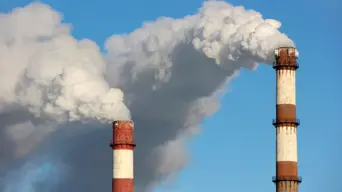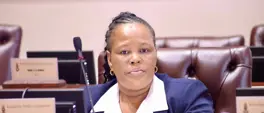Understanding ‘climate tipping points’ and why they are irreversible
Kabous Le Roux
26 November 2025 | 9:35The Earth has reached the first of many system tipping points, explains Dr Laura Pereira of the Global Change Institute at the University of Witwatersrand.

The Earth has reached the first of many system tipping points, according to recent research, signalling a potential catastrophic future for our civilisation if urgent action isn't taken. This alarming development adds to the growing concerns about climate change that have dominated global environmental discussions in recent years.
Dr Laura Pereira, Associate Professor at the Global Change Institute at the University of Witwatersrand, explains what these tipping points mean: "A tipping point is really a threshold after which a system completely changes its function, and it's irreversible, so you can't go back." Unlike resilient systems that can recover when pressure is removed, systems that reach tipping points undergo fundamental, permanent changes.
These environmental thresholds have profound implications for human survival. While the Earth itself will continue to exist regardless of climate change, the conditions that allowed human civilisation to flourish may not. As Pereira points out, "The Earth is going to be here no matter what. Whether it's going to be habitable for us to be able to live on and actually thrive on is dependent on these climatic conditions."
One of the most imminent tipping points involves coral reef ecosystems, which face multiple threats beyond just climate change. "Over a billion people around the world are actually relying on coral reefs for their food and for their livelihood," Pereira explains. "This is sort of the base of where so many of our fish stocks actually come from." The collapse of these systems would devastate coastal nations and communities dependent on fishing.
What makes our current situation different from past Earth changes is human agency. "This isn't just something that's happening to us, it's something we are actively or sort of a very specific set of humans are actively doing to the planet," Pereira emphasises. By extracting and burning fossil fuels, we are deliberately altering the climate system.
Despite the urgency, global climate negotiations like COP30 in Brazil have failed to produce the necessary bold action. The summit was described as ‘deeply divisive’ with an ‘uneasy’ deal that lacked consensus on cutting fossil fuels. Geopolitical tensions and competing priorities between developed and developing nations continue to hamper progress.
The financial aspect of climate action remains contentious. How do we fund climate adaptation and resilience, particularly in vulnerable regions of the Global South? Pereira frames this as a matter of historical justice: "So many of these vulnerable places in the world are subject to these climate change impacts that they never caused in the first instance."
Despite the slow pace of international agreements, Pereira sees hope in ground-level changes and potential ‘positive tipping points’ in areas like finance, where recognition of climate risks is shifting investment patterns away from fossil fuels toward nature-supporting activities.
For those wanting to understand the full complexity of climate tipping points and the path forward, listening to Pereira's complete interview offers invaluable insights into one of the most pressing challenges of our time. Click below to listen:
Get the whole picture 💡
Take a look at the topic timeline for all related articles.














